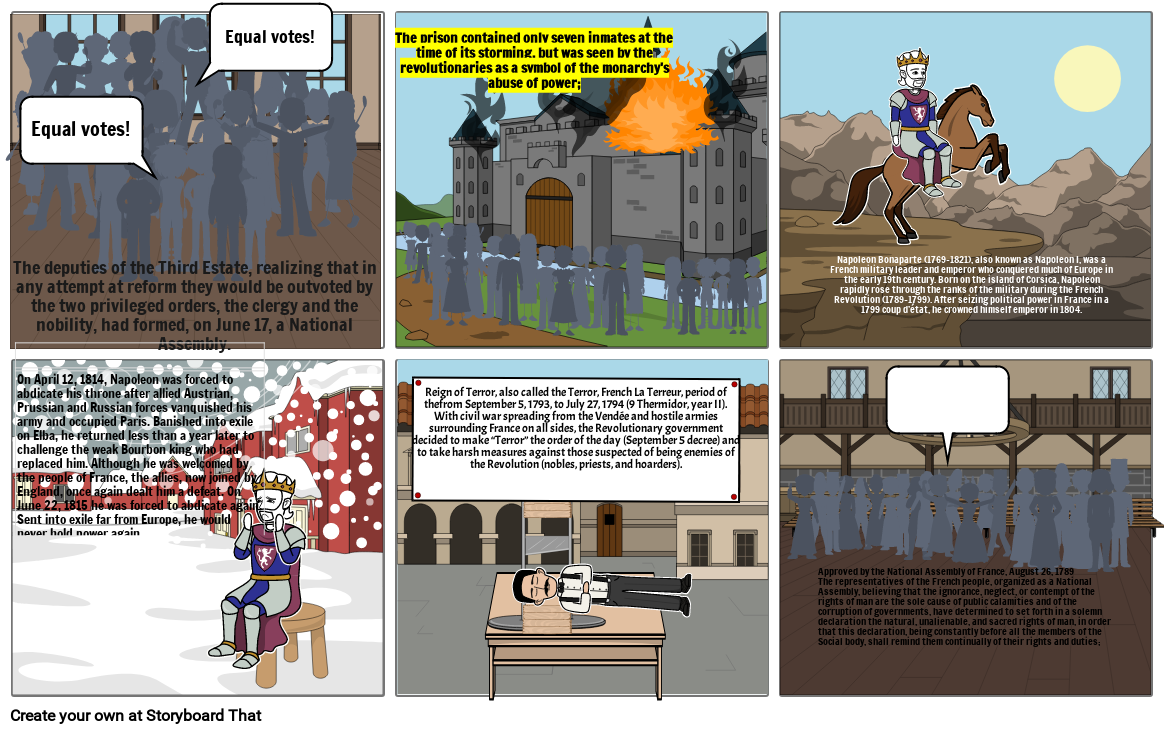
Snemalna Knjiga Opis
yup
Snemalna Knjiga Besedilo
- The deputies of the Third Estate, realizing that in any attempt at reform they would be outvoted by the two privileged orders, the clergy and the nobility, had formed, on June 17, a National Assembly.
- Equal votes!
- Equal votes!
- The prison contained only seven inmates at the time of its storming, but was seen by the revolutionaries as a symbol of the monarchy's abuse of power;
- Napoleon Bonaparte (1769-1821), also known as Napoleon I, was a French military leader and emperor who conquered much of Europe in the early 19th century. Born on the island of Corsica, Napoleon rapidly rose through the ranks of the military during the French Revolution (1789-1799). After seizing political power in France in a 1799 coup d’état, he crowned himself emperor in 1804.
- On April 12, 1814, Napoleon was forced to abdicate his throne after allied Austrian, Prussian and Russian forces vanquished his army and occupied Paris. Banished into exile on Elba, he returned less than a year later to challenge the weak Bourbon king who had replaced him. Although he was welcomed by the people of France, the allies, now joined by England, once again dealt him a defeat. On June 22, 1815 he was forced to abdicate again. Sent into exile far from Europe, he would never hold power again.
- Reign of Terror, also called the Terror, French La Terreur, period of thefrom September 5, 1793, to July 27, 1794 (9 Thermidor, year II). With civil war spreading from the Vendée and hostile armies surrounding France on all sides, the Revolutionary government decided to make “Terror” the order of the day (September 5 decree) and to take harsh measures against those suspected of being enemies of the Revolution (nobles, priests, and hoarders).
- Approved by the National Assembly of France, August 26, 1789The representatives of the French people, organized as a National Assembly, believing that the ignorance, neglect, or contempt of the rights of man are the sole cause of public calamities and of the corruption of governments, have determined to set forth in a solemn declaration the natural, unalienable, and sacred rights of man, in order that this declaration, being constantly before all the members of the Social body, shall remind them continually of their rights and duties;
Ustvarjenih več kot 30 milijonov snemalnih knjig

